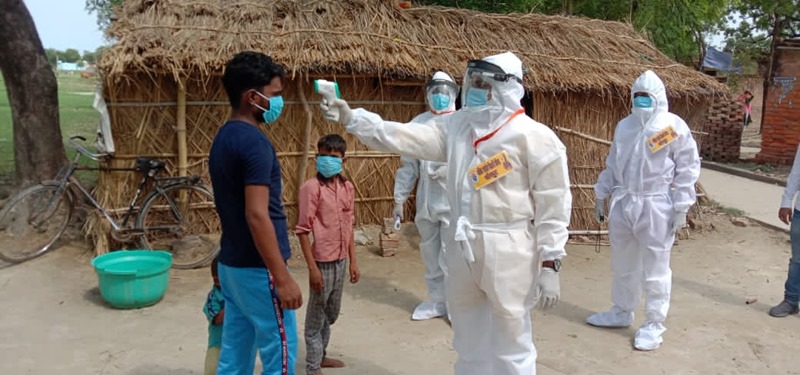The second wave of the COVID19 pandemic is barely over and a number of Indian states have already started reporting an increase in coronavirus cases. In the past three days, Maharashtra, Delhi, Kerala, Andhra Pradesh, Punjab and some other states have registered an upward trend in the new COVID cases. The numbers at the national level are also rising.
Maharashtra, the worst affected state in the second wave, had witnessed a steady decline in daily new cases. On June 17, it had reported 9,830 new COVID cases, which have now jumped to 10,066 new cases yesterday on June 23, as reflected in the Government of India (GoI) data (Twitter @COVIDNewsByMIB). The lowest cases recorded last week in the state was on June 21, when 6,270 new cases were recorded. Since then the cases are steadily increasing (see graphic).
In some states, the sudden rise in numbers could be a reflection of the positive cases pertaining to earlier weeks being added on the ICMR portal by Vardhman Mahavir Medical college and associated Safdarjung Hospital, Govt of India.
For instance, as per the GoI data, the daily new cases in the national capital of Delhi have increased from 158 cases on June 17 to 588 on June 23. The lowest daily new cases — 89 — recorded in Delhi were also on June 21.
As per the Delhi Health Bulletin, 111 positive cases were reported in the last 24 hours on June 23. However, 477 positive cases pertaining to earlier weeks have been added on the ICMR portal by Vardhman Mahavir Medical college and associated Safdarjung Hospital, Govt of India.

Similarly, on June 22, 134 cases were reported but 263 positive cases pertaining to earlier weeks have been added on the ICMR portal by Vardhman Mahavir Medical college and associated Sadarjung Hospital, Govt of India.
In the southern state of Kerala, the daily COVID cases rose from 12,469 on June 17 to 12,787 on June 23. At 7,449, the lowest daily new cases in the state were recorded on June 21.
Other states observing the rising daily COVID cases include Andhra Pradesh, Punjab, Assam and the union territory of Jammu & Kashmir.
The daily caseload is showing a slight upward trend even at national level too. The daily COVID cases across the country were observing a decreasing trend till June 21, when the lowest daily cases — 42,683 — were recorded. However, the cases started rising since then. Yesterday (June 23), 54,296 daily cases were reported across India.
Interestingly, Uttar Pradesh, the most populous state in the country, continues to report a decrease in daily coronavirus cases. Last week, on June 17, the state reported 275 new cases. However, yesterday June 23, only 112 cases were reported. This is the lowest data for the state so far in the second wave.
During the second wave of COVID19, India saw a devastating surge in the novel coronavirus cases. With 414,188 daily new cases, the country recorded the highest daily spike last month on May 6. So far 391,981 people have died due to COVID in India.
The rural hinterland was not unscarred too. Families of patients across the country were seeking hospital beds, ventilator beds, and oxygen. However, the daily cases and hence the active caseload in the country started declining thereafter, bringing relief to citizens.
But the recent rise in new daily cases in several Indian states is a cause of concern as Delta and Delta Plus variants of the COVID19, which are highly infectious, have been reported in the country.
Also Read: Explained: Delta Plus variant — how risky is it? Are COVID19 vaccines effective?
Last week, AIIMS director Randeep Guleria warned that India could see the third wave in six-eight weeks if COVID-appropriate behaviour was not followed. It usually takes four to five months for a subsequent wave to peak, he was quoted as saying in the media reports.
He also explained that the Delta variant, which is highly transmissible and is supposed to be responsible for the devastating second wave, continues to pose a high risk to a large section of the population that is not vaccinated and hasn’t been exposed to the virus yet.
“There are also reports of cases due to a Delta Plus variant. If we don’t follow COVID norms, cases may start rising again,” he had warned.














